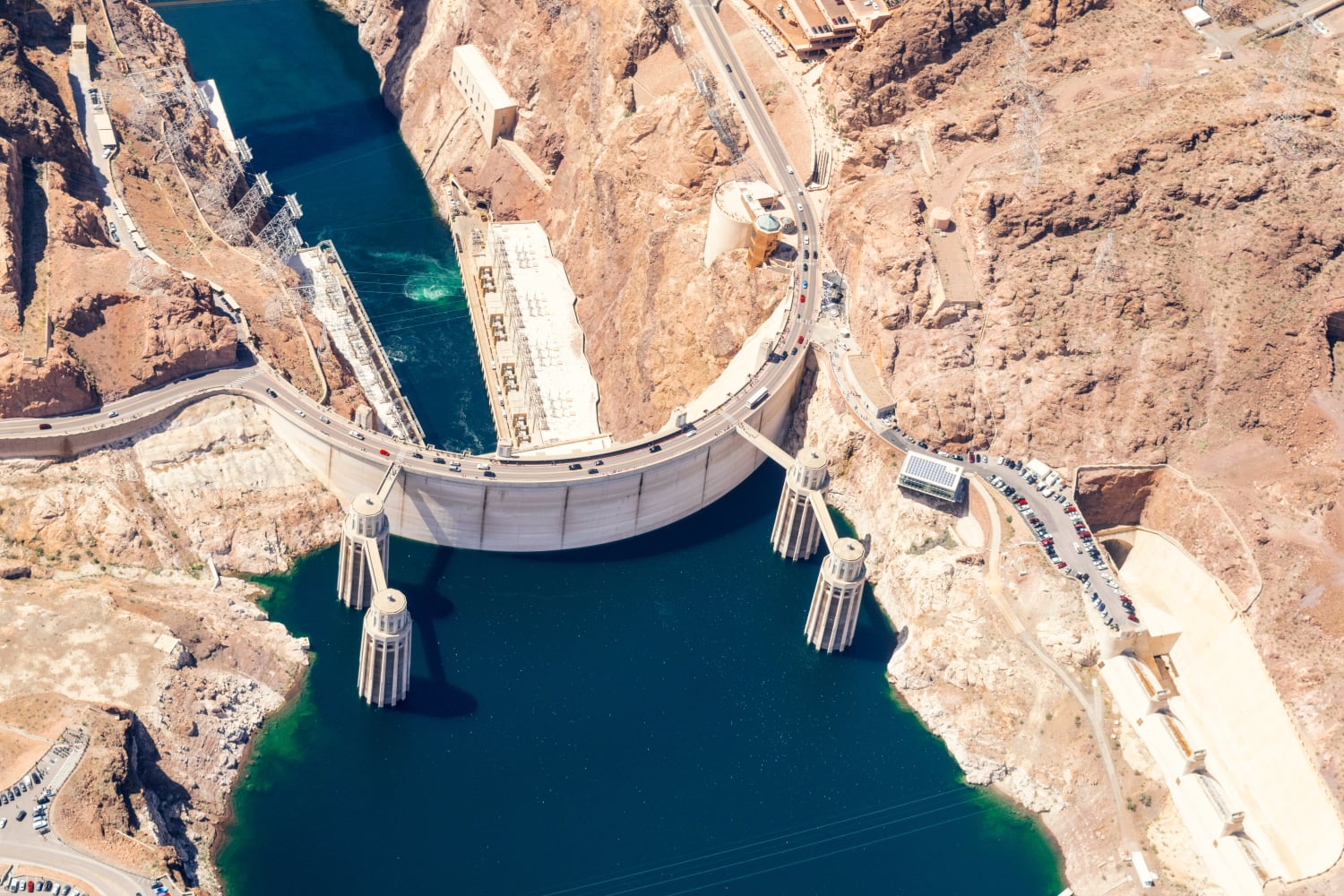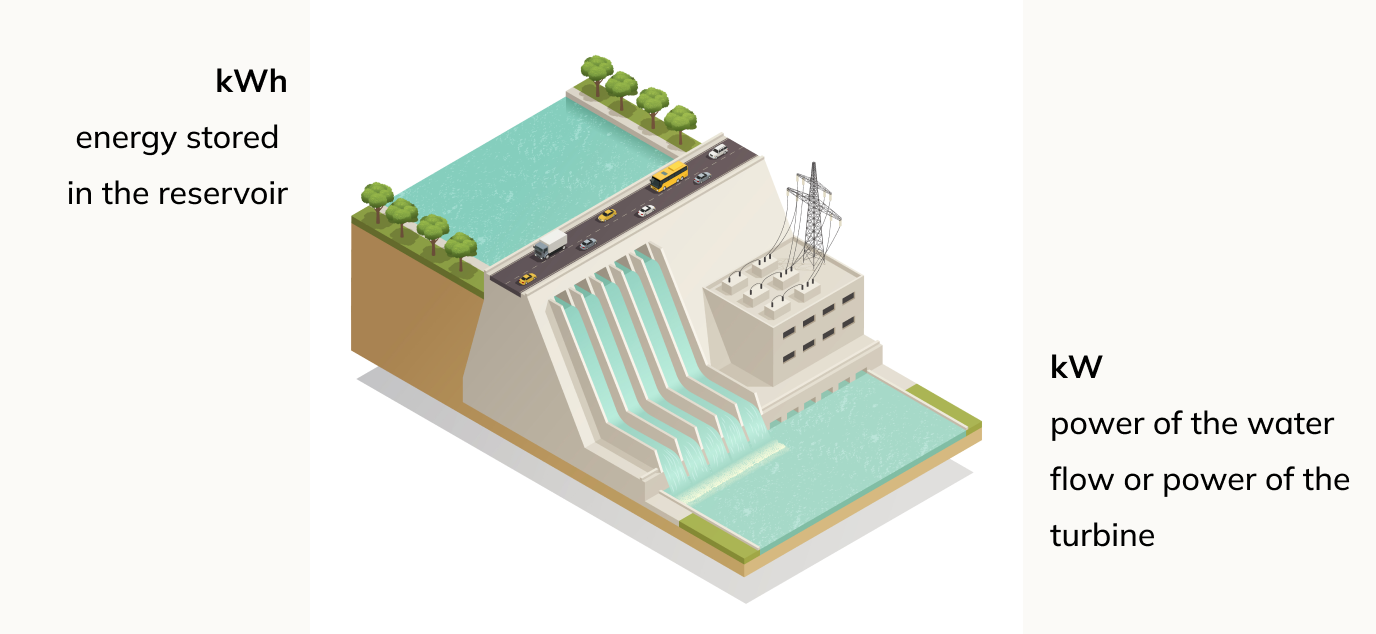kWh vs. kW: what's the difference?

With an energy crisis in Europe simultaneous to the transition to a green energy system, energy is truly the topic of the hour. States and consumers alike, are hence urgently looking to reduce their dependence on fossil fuels. When looking into the solutions (electric vehicles, solar, heating with a heat pump, or energy saving), you will sooner or later encounter the units kWh (kilowatt-hour) and kW (kilowatt). However, often these units are confused. Let’s clarify!
Definitions of kW and kWh
Consider the simple illustration of a water reservoir with a turbine connected by a pipe, as shown in the figure below. How can kWh and kW be expressed in this system?

-
kWh is a unit of energy. In the example of the water reservoir, it is the amount of energy contained in the reservoir, specifically in the weight of the water held back by the reservoir dam.
-
kW is a unit of power. In the example of the water reservoir, it is represented by the water flowing down the pipe and turning the wheel of the turbine, or, eventually, the electric power of the turbine.
-
kW and kWh are connected in the sense that one kWh is simply the energy that is generated by 1 hour of sustained power of 1kW.
Let’s look at some typical examples for those units that you might encounter.
Examples of kW and kWh
| Item | Unit | Explanation |
|---|---|---|
| (Electric car) battery size | kWh | Tells you how much energy is in a fully charged battery and indicates (for the example of the car battery) the electric car's range. |
| Electric (car) motor | kW | Indicates how strong the motor is, and indicates (for the example of the car motor) how fast you could drive or accelerate. |
| Solar system size | kW | How much power you could generate (e.g. under full sunlight) with a solar system of a certain size (e.g. a house roof covered with panels) |
| Solar system yearly production | kWh | The amount of energy (electricity) a solar system can produce in a year on average. |
As we are transitioning through the electrification of transportation and energy systems, you’ll encounter these units (kWh and kW) more frequently. They’ll soon feel more natural, similar to for example “liters per 100km” (MpG - Miles per Gallon) or PS/horsepower, which are widely understood and used when it comes to gasoline cars today.
If you want to simplify the transition to a zero carbon life and energy system in your household, please consider downloading our app. It helps you understand your household’s carbon footprint automated and in real-time, switch to green energy, and save energy by transitioning to low carbon products and services.
Nerds only: more related units and trivia
- Power is work per time.
- One kilowatt equals approximately 1.34 horsepower.
- One kilowatt is 1000 watts (kilo means 1000 in latin).
- The unit watt is named after James Watt, the inventor of the Watt steam engine (and many other things).
- Larger power plants’ energy production and power are usually expressed in megawatt-hours (MWh) and megawatt (MW), gigawatt-hours (GWh) and gigawatt (GW), or terawatt-hours (TWh) and terawatt (TW). One megawatt is 1000 kilowatt, one gigawatt is 1000 megawatt or 1 million kilowatts, and one terawatt equals 1000 gigawatt or 1 billion kilowatts.
- The largest power plants in the world by power are hydro plants in the order of > 10 GW, and typical nuclear or coal power plants are 1-10 GW. World’s largest wind farm is ~ 7GW and the world’s largest solar farm is 2.7 GW.
- A typical 4-person household in Europe uses about 3000 - 4000 kWh of electricity per year.
Figure illustration credit: Bio energy vector created by macrovector - www.freepik.com